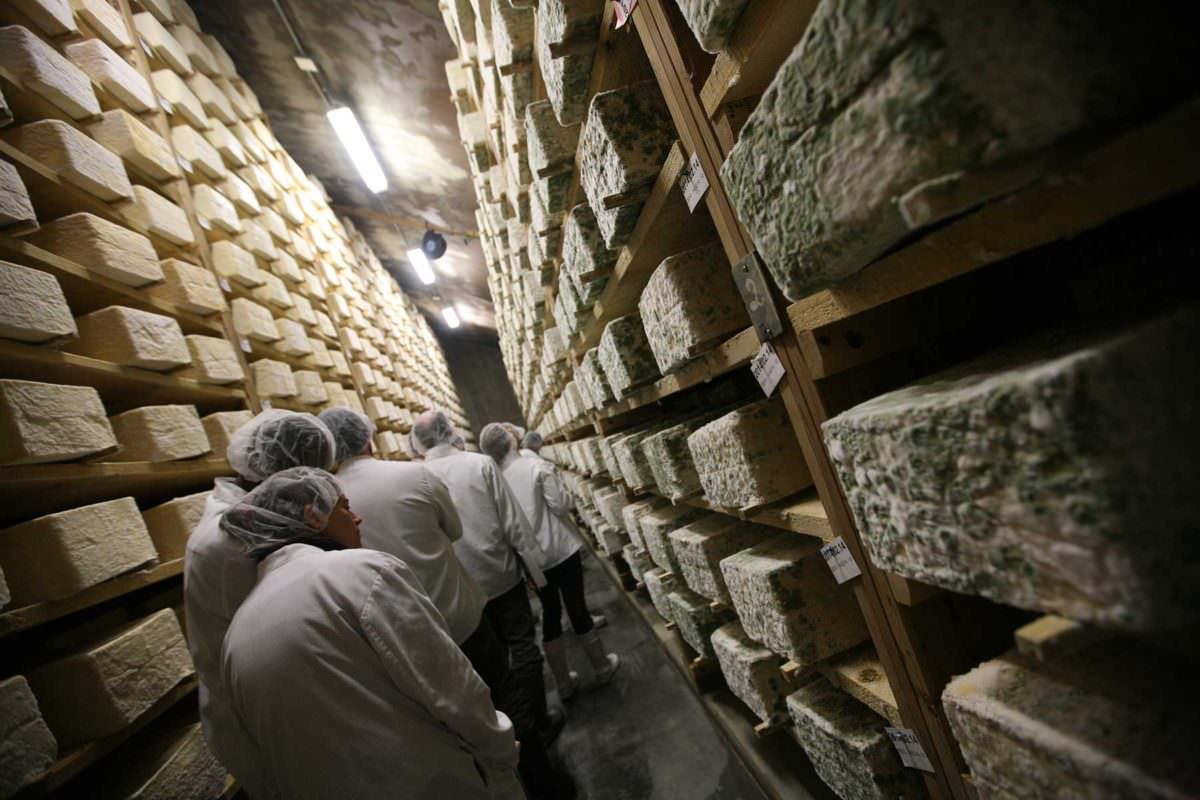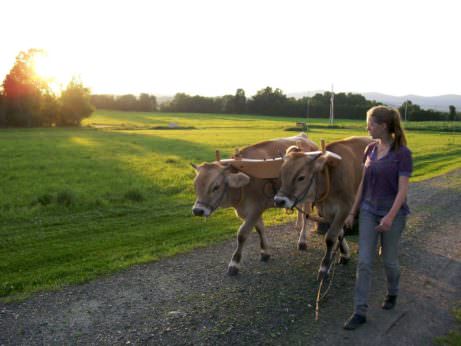Sterling College is at the center is part of a major revolution in food systems.

Here is a place of innovation, and an important center for a revolution in food systems, with the world-renowned Cellars of Jasper Hill, High Mowing Seeds, the Center for an Agricultural Economy, Vermont Soy, and Hill Farmstead Brewery all making their home here.
Alumni of the courses point out how the program gives their passion for food and farming the time and space they deserve.
At the center of this Vermont movement to reshape local food and farming is Sterling College. Its picturesque campus, with draft horses, sheep, and chickens thriving on its 400+ acres of farm, forest, and gardens, is a living laboratory to tackle the big questions of the 21st century: how does one farm without exacerbating climate change? And how can the nation transform its food system into one that is fair, just, and sustainable?
“Creating an equitable and sustainable food system is impossible without community-minded entrepreneurs and local, human-scale farms,” said Nicole Civita, assistant director of the Rian Fried Center for Sustainable Agriculture & Food Systems at Sterling College. “To build food system resilience, we need to cultivate and repurpose traditional skills and educate people who are interested in ecological farming, small-scale food production, and nourishing their own communities.”
Sterling College has been examining the links between agriculture, food, and the environment for over 40 years, and has opened up its ecologically-minded curriculum for lifelong learners with its School of the New American Farmstead.
[mf_h2 align=”left” transform=”uppercase”]School of the New American Farmstead[/mf_h2]

“In Vermont, farms aren’t seen as elite institutions; they’re part of life already,” said Ruth Reichl, renowned food writer and editor, and former School of the New American Farmstead instructor. “So [Vermont], probably more than any other state, is really in a position to integrate the farm economy into people’s everyday lives.”
The experiential approach to these courses will engage students’ senses and impart techniques perfected by some of the world’s most skilled ecological farmers and artisanal food producers. The School of the New American Farmstead has celebrated instructors for its courses this summer, including Ivan Larcher, Pandora Thomas, Jean Martin Fortier, Tradd Cotter, David Asher, Pascal Baudar, Sandor Katz, Michael Phillips, and more.
[mf_h2 align=”left” transform=”uppercase”]Summer 2017 Courses[/mf_h2]
Courses include: “The Art of Natural Cheesemaking,” “Social Permaculture,” “Wholesome Whole-Wheat Pastry,” “Ecological Orcharding,” “Holistic Animal Husbandry,” “Small-Scale Dairying,” “Small-Batch Brewing,” “The Art of Fermentation,” “Working Animals, Working Landscape” and “Market Gardening: Intensive Crop Production.”
Alumni of the courses point out how the program gives their passion for food and farming the time and space they deserve. Jessica Keahy, the founder and cheesemaker of Sweet Freedom Creamery in Fayetteville, Arkansas, is an alumna of the “Fundamentals of Artisan Cheese” class taught in conjunction with the Cellars at Jasper Hill.
She said of the course, “There’s nothing like it in the U.S. I was looking for the next step; there were very few classes offered in the U.S. that were really in-depth. I wanted to make sure I was getting my money’s worth, but it’s exactly what I was looking for!”
Stacey Clinesmith said of her time in the course “The Art of Fermentation” with Sandor Katz, “Not only did I get a chance to learn some new tips and techniques for fermented foods I’ve been making for years, like sauerkraut and kimchi, I got to learn how to make a whole host of other fermented foods I’d never tried before.”
She continued, “And, I got to learn about all of it from a man whose books I’ve loved and whose advice I’ve relied upon since I made my first batch of kraut. Having the opportunity to work alongside someone I have admired from afar was just as special and delightful as I’d hoped.”
But these courses aren’t just about building a new career or hobby. It’s about giving students the tools to farm or produce food in ways that are sustainable and just. Jan Paul, one of the instructors for the class “Small-Batch Brewing,” said, “The ecological approach to artisan food that the School of the New American Farmstead promotes is completely in line with my brewing practices.”
He continued, “I am grounded by a strong environmental ethic, and so is this program.”
Learn more about the classes at the School of the New American Farmstead and how to register at www.sterlingcollege.edu/modernfarmer.
Check out previous editorial coverage of Sterling College on ModernFarmer.com here.